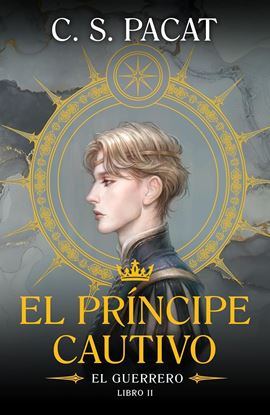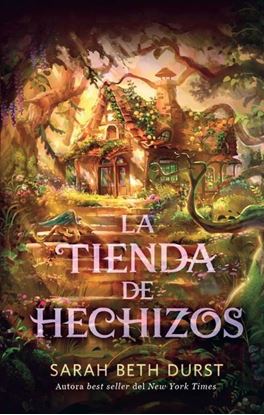

QUIZAS EN OTRA VIDA
A sus 29 años, Hannah Martin todavía no sabe qué quiere hacer con su vida. Ha vivido en varias ciudades y pasado por innumerables trabajos desde que se graduó. Pero, ahora, Hannah ha decidido regresar a Los Ángeles, su ciudad natal, e instalarse en casa de Gabby, su mejor amiga. Una noche deciden salir y Hannah se reencuentra con Ethan, su amor de juventud. ¿Qué pasará si vuelve a casa con Gabby?
¿Y si se queda con Ethan?
En realidades paralelas, Hannah vivirá las consecuencias de una y otra elección. Pero ¿puede una decisión aparentemente trivial cambiar el curso de nuestra vida? Esta obra nos invita a cuestionarnos si los eventos suceden porque estaban escritos, si existen las almas gemelas y, en definitiva, si hay una única manera de encontrar la felicidad. Una interesante reflexión sobre el amor verdadero y el destino.
1,250
TERRESTRE
Terrestre bien podría ser definido como un libro de palabras en completa libertad. Imaginativo, con estructuras narrativas audaces, Cristina Rivera Garza escribe aquí sobre trayectos terrestres que nos llevan a distintos lugares de México y el mundo, y a distintos destinos del cuerpo. A pie, en bus o en tren, las jóvenes protagonistas de estas historias avanzan acompasadas por rutas ignotas, inventando para sí nuevos modos de ocupar los espacios negados y en disputa.
1,250
MADRID TIENE LOS OJOS VERDES
¿Adónde huirías si tu ruptura se convirtiera en un fenómeno viral de TikTok?
Rocío Velasco es escritora de novela romántica.
Rocío tiene veintiséis años, es tauro y ama ver las puestas de sol frente al mar.
Rocío escribe historias de amor con finales felices, porque eso es lo que busca y eso es lo que quiere.
Sin embargo, a Rocío le han roto el corazón y su ruptura se ha hecho viral.
Y no puede soportarlo.
Por eso decide marcharse de Madrid. Lo que nunca imaginaba es todo lo que supondría este nuevo comienzo.
1,250
EL PRINCIPE CAUTIVO: EL GUERRERO (II) MX
El príncipe cautivo: El esclavo es el comienzo de una trilogía de fantasía romántica y oscura, donde nada ni nadie es lo que parece. Quien menos esperas puede ayudarte o traicionarte.
Damen es un guerrero y un héroe para los suyos, así como el heredero legítimo del trono de Akielos. Pero cuando su hermanastro se hace con el poder, lo capturan, le arrebatan su identidad y lo envían a servir al príncipe de una nación enemiga como esclavo de placer.
Su nuevo amo, el príncipe Laurent, es guapo, manipulador, mortífero y encarna lo peor de la corte de Vere. Pero en la letal telaraña política de la corte vereciana, nada es lo que parece y, cuando Damen se ve en medio de una pelea por el trono, tiene que unirse a Laurent para sobrevivir y salvar su país.
Para Damen solo hay una norma: no revelar jamás su verdadera identidad, porque el hombre a quien necesita es aquel que tiene más razones que cualquiera para odiarlo.
1,250
LA TIENDA DE HECHIZOS (MEX)
Un bucólico cuento repleto de libros de hechizos robados, amistades inesperadas, azucaradas mermeladas y amores todavía más dulces.
A Kiela siempre le ha costado relacionarse con las personas. Por suerte, como bibliotecaria en la Gran Biblioteca de Alyssium, se ha pasado la última década recluida entre los libros de hechizos más preciados del imperio, preservando su magia para la élite de la ciudad.
Cuando estalla una revolución y la biblioteca se incendia, Kiela huye acompañada de su ayudante Caz, una planta mágica sintiente, y con todos los libros de hechizos que son capaces de cargar. Su destino es una isla remota que jamás pensó que volvería a ver: el hogar de su infancia. Tras refugiarse en la casa de sus recuerdos, descubre que su vecino es un chismoso (muy atractivo) que no capta las indirectas y que se empecina en visitarla día tras día para asegurarse de que tenga comida y ayudarla a arreglar su nuevo hogar.
Desesperada por generar ingresos, Kiela descubre algo que ni siquiera la panadería del pueblo puede ofrecer: mermelada. Con la ayuda de un antiguo recetario de sus padres y un poco de magia, el jardín de la casa no tarda en ser invadido por arbustos cargados de bayas maduras.
Pero la magia puede servir para algo más que endulzar la vida, así que Kiela decide correr el riesgo que le puede suponer el uso de hechizos y abre la primera tienda de hechizos clandestina.
1,250
NADA COMO EN LAS PELICULAS (MEX)
WES CONSIGUIÓ A LA CHICA DE SUS SUEÑOS: SU VECINA, LIZ.
La maravillosa, perfecta y fuerte Liz. Pero justo cuando los dos estaban a punto de marcharse a UCLA para empezar su primer año de universidad, ocurrió una tragedia. Wes tuvo que enfrentarse a las consecuencias, lo que, sin querer, también significó tener que perder a Liz en el proceso.
Unos meses más tarde, Wes y Liz se reencuentran en la universidad. Ahora, mucho mejor que en el pasado, Wes sabe que le rompió el corazón cuando puso fin a su relación, pero está decidido a conseguir que se vuelva a enamorar de él.
Wes conoce a Liz mejor que nadie y tiene un plan infalible para ganarse su corazón de nuevo, uno digno de película. El único problema es que... ¡Liz no quiere saber NADA DE ESE TEMA! Por lo que Wes tendrá que actuar como el protagonista de una comedia romántica para verla. Y lo que es aún peor, Liz ha hecho un nuevo amigo con el que pasa todo el tiempo. Un AMIGO. Otro contratiempo más en los ingeniosos planes de Wes, sin embargo, no está dispuesto a rendirse.
¿Encontrará Wes la manera perfecta de conseguir que Liz lo perdone y podrá demostrarle que ÉL es su amor verdadero? ¿O su relación se habrá roto para siempre?
1,250














